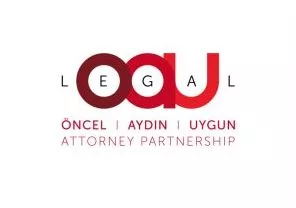1- Share Transfer:
Share transfer in a company does not affect the company's employees (save for cases where the working conditions of the employees adversely change due to the practices of the new management, as explained in detail below). Since the company's legal personality does not change by the share transfer, all rights and obligations of the company in which the shares are being transferred, vis-à-vis employees continue as is.
Unless otherwise is agreed in the share transfer agreement (as drafted by the transferor shareholder and the transferee shareholder), the transferor shareholder will be relieved from all obligations vis-à-vis the employees, after the share transfer. The only exception is that, according to the legislation regarding collection of public receivables; the transferor of the shares and the transferee are jointly liable for the unpaid social security premiums (as well as other public receivables) in limited liability companies.
2- Transfer of Business Place:
As a general rule under Turkish labor laws, all employment contracts (with all rights and obligations attached thereto) are automatically transferred when a business place is transferred to a new owner, based on a legal transaction.
However, it must be taken into consideration that for an automatic transfer to be effective and binding on the employees, the working conditions must remain as they were prior to the transfer. Otherwise, the employees may object to the new adverse conditions. If the new adverse conditions are applied due to valid reasons such economic or technologic reasons or due to the change of workplace organization, all as a result of the business place transfer, the new employer may terminate the objecting employee (by paying severance unless there is a justified cause). The transfer of business place itself does not automatically constitute a just cause or valid reason for termination of the employment contracts by the employer.
An automatic transfer of the employees leads to transfer of rights of the employees to the new employer with a retrospective effect, i.e. for the calculation of the employee's rights such as severance payments and the annual leaves, the date when the relevant employee has started working for the first (transferor) employer will be taken into account, and not the date of the business transfer, whereby the employees are transferred.
After the transfer date, the first (transferor) employer – together with the new (transferee) employer – will continue to be jointly and severally liable for a period of 2 years for the obligations arising from the employment contracts existing on the transfer date. After 2 years, the first employer will no longer be bound, however liability of the new employer will continue.
3- Merger/Spin-Off
As a special rule under the Turkish Commercial Code, in case of merger or spin-off transactions, employment contracts that the company merging/spinning-off is party, are automatically transferred to the absorbing/newly formed company, with all rights and obligations attached thereto, if the relevant employees do not object to the transaction. In such case, objection actually means the employee's right to terminate his/her employment relation, rather than the right to block the merger/spin-off transaction.
If an employee objects to the merger/spin-off transaction, his/her employment contract will be deemed terminated at the end of the statutory termination notice period (in which case the employee will be entitled to severance payment unless there is a justified cause). Until that time, the new employer and the employee must continue performing their obligations under the employment contract.
The company merging/spinning off, as the former employer, and the absorbing/newly formed company, as the new employer, are jointly and severally liable (for an unlimited period of time) for the employees' receivables that became due before the date of the merger/spin-off (i.e. registration of such transaction with the trade registry), and also for the employee's receivables which will become due until the expiry of the employment contract (those concluded for a definite-period) at the end of its term or termination of the contract after the statutory termination notice period.
Employees are entitled to request from the absorbing/newly formed company to secure their receivables which are due on the day of transfer of the employment contracts as a result of the merger/spin-off (i.e. registration of such transaction with the trade registry) as well as the receivables that will become due until the expiry of the employment contract (those concluded for a definite-period) at the end of its term or termination of the contract after the statutory termination notice period.
As a final note, (notwithstanding the above-mentioned consent mechanism), according to the general rule under labor laws, if the working conditions after the merger/spin-off transaction, adversely change, the employees may object to the new conditions. If the new conditions are applied due to valid reasons such economic or technologic reasons or due to the change of workplace organization, all as a result of the merger/spin-off transaction, the new employer may terminate the objecting employee (by paying severance unless there is a justified cause). The merger/spin-off transaction itself does not does not automatically constitute a just cause or valid reason for termination of the employment contracts by the employer.☼
The content of this article is intended to provide a general guide to the subject matter. Specialist advice should be sought about your specific circumstances.
